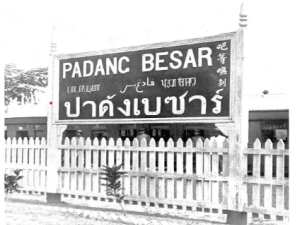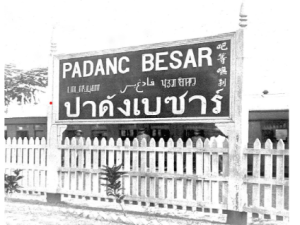Co-written by Harprabhjeet Singh Bedi
What thoughts are running through the minds of the Indians of various creeds and clans who are fighting for their King Emperor in the many theatres of war? The best answer that can be given is to reproduce a few extracts from a series of letters written by a valiant Sikh officer Subedar Balwant Singh, who recently lost his life while on active duty. They were not meant for publication, but were addressed to his family and relatives in India. But for the death of the brave officer they would not have been available to the public.
At the time of his death he was holding the rank of Risaldar Major, the senior Indian officer in an Indian regiment, the highest rank open to an Indian. Before proceeding to the front with his regiment last year, he had seen action in Chitral (1895), Waziristan (1901) , Tibet (1903), and the North-west Frontier (1908), in each campaign winning a medal and clasp. He had been admitted into the second class of the Order of British India, and was entitled to add at the end of his name the title of "Bahadur," meaning brave or courageous. He had also been admitted into the Victorian Order.
In a letter he wrote to a relative, Subedar Balwant Singh urged the latter to advise Singh (Balwant Singh's son), who had just joined an Indian cavalry regiment, proceeding to a theatre of war:-
If you see. him, please tell him without fail. that he should remember that he has got an opportunity of fulfilling his duty of serving his Government, nation, and country, and so he should show courage, valour, and bravery. Death is inevitable and its hour is unknown. Hence to feel anxiety on this account is cowardly. 'The brave never die." On the contrary, they live to eternity. He should not blemish the name of his father and family. I shall, with great pride, hear him die as a brave man, but would not tolerate even for a moment any act of cowardice on his part.
Subedar Balwant Singh of the 3rd Skinner's Horse was sent to the Western Front, France, with the 7th (Meerut) Cavalry Brigade in late 1914.The Indian Cavalry Corps was held as mobile reserve and later the Corps took over a sector in Thiepval, which was one of the a fortress villages in Somme held by the Germans opposite the "Leipzig Redoubt". Skinner's Horse saw extensive action in many parts of France and was awarded the battle honour 'France and Flanders' for its fine performance in this theatre of operations.
For his service in command of the Regiment in France, Subedar Major Balwant Singh Sardar Bahadur received the order of British Indian, 2nd class for distinguished service in the field and was promoted three years later to the 1st class.
In a letter addressed to his brother, the Subedar Major thus Dedicated himself to duty:-
I am born a soldier, have been a soldier, and will remain a soldier. Death is no fear nor a change even to me. I am bound to duty, and duty I only care for. In performance of duty life is not a two pence value. Duty will be performed, my dear, by your brother at any risk. Death will be faced with credit and pride, for honor and glory, for the country and Empire. I do not at all worry of anybody now. I trust the Almighty and the persons concerned, for their looking after l have been doing my best to fulfill my duty towards them. Feeling for worldly connections are natural and noble cause, but now I am meant for duty, the most paramount and sacred above all.
Subedar Balwant Singh died in the performance of his duty. He was mortally wounded while serving his King Emperor.
A fascinating unit history which will interest all Great War history specialists, as well as cavalry and Indian enthusiasts. This till today remains one of the legendary exploits of the regiment and is celebrated as an act of great courage against heavy odds. Two Indian regiments - the 20th Deccan Horse and the 34th Poona Horse, which supported the British Seventh Dragoon Guards took part in the first and only cavalry charge of the battle between the High Wood and Delville Wood area of France. That was on July 14, 1916, the day the French celebrate the fall of the Bastille.
On July 1, 1916 the Secunderabad Cavalry Brigade moved into a reserve position on the Somme , ready to exploit any breakthrough. The same Brigade was sent up again on July 14, to Montauban to support the attack on the Bazentin - Longueval ridge. At 17.30 the leading two regiments were ordered to advance between High Wood and Delville Wood. The British 7th Dragoon Guards and the Indian 20th Deccan Horse galloped forward to a position between the woods.
The charge of the British 7th Dragoon Guards and Royal Deccan Horse at High Wood on July 14th 1916, two weeks into the battle of the Somme, is one of the legendary exploits of the Great War - celebrated for the courage of those who galloped up through the cornfields, and for the sheer anachronism of attempting a cavalry charge on the western front. The charge was the first made since trench warfare began, and it was the last. At 03.30 on July 15 , they returned to Montauban, having suffered casualties of 74 men and 110 horses.
Although they were forced to retreat under heavy fire, their participation made history. It was clear to the strategists when they were ordered to provide back up support to an infantry advance beyond High Wood, near the Carnoy Valley area of the Somme battleground, that the cavalry's day was over.
A British officers account~
Night after night our cavalry have gone out on patrol, the leader ahead and alone, two men following, behind them a small body keeping in touch. They ride silently, like shadows, with no clatter of stirrup or chink of bit. They find the gaps in the enemy's wire, creep close to his infantry outposts, ride very deftly into the charred ruins of abandoned villages, and come back with their news of the enemy's whereabouts.
They have liked their hunting. "They came before one could wink and flew at each other". It was absolutely a cavalry charge. I have seen the Indian Cavalry riding across the fields with their lances high, and it was a great sight and as strange as an 'Arabian Nights' tale in this land if France to see those streams, of brown, bearded men, as handsome as fairy book princes, with the wind blowing their khaki turbans.
They were the men whom I had seen on my way up to the battlefield, a small detachment of the Deccan Horse. They worked forward with our infantry on a stretch of country between Bazentin Wood and Delville Wood, rising up to High Wood, and then rode out alone in reconnaissance, in true cavalry formation, with the commander in the rear. "Lord! Not one in a thousand would have believed it possible to see this again. When they passed the infantry went a little wide and cheered wildly and joyously, as though these men were riding on a road of triumph"
Resources:
1) http://www.salute.co.in/skinners-horse-in-the-first-world-war-1914-18/
2) http://www.bharat-rakshak.com/ARMY/images/Poona%20Horse.pdf
3) https://www.thegazette.co.uk/London/issue/31826/supplement/3393
4) http://www.thefullwiki.org/2nd_Indian_Cavalry_Division
5) http://120.138.9.146/columnists/should-indians-fight-far-home-543
6) With the Indians in France by Willcocks, James, Sir, b. 1857
7) India's fighters: their mettle, history and services to Britain by Singh, St. Nihal, 1884-
8) Photograph courtesy of The Fitzwilliam Museum, University of Cambridge






